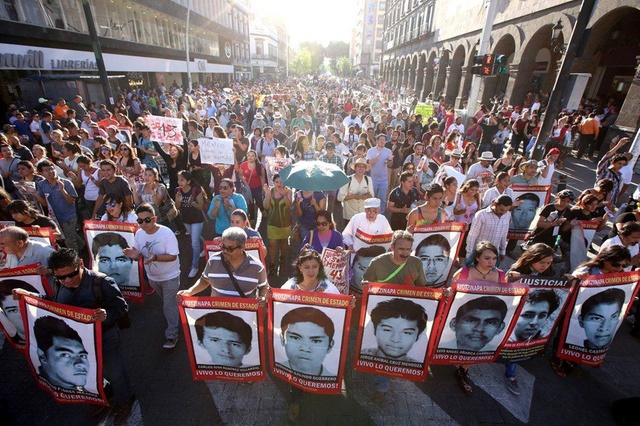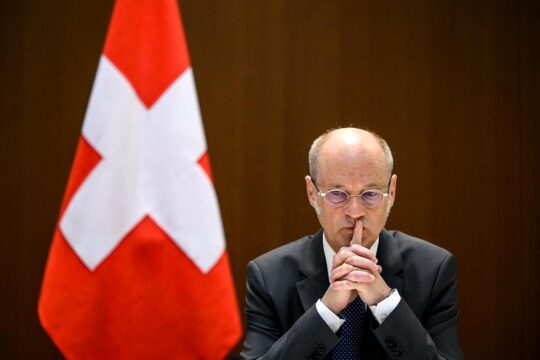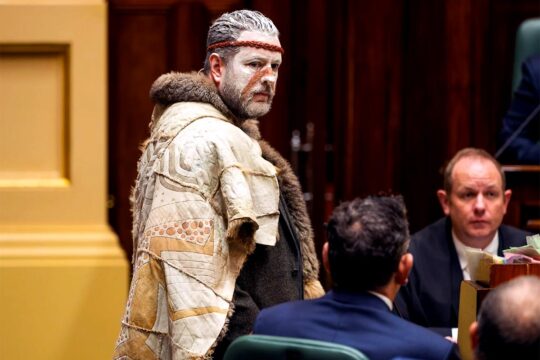Secret mass graves in Mexico, daily bombings and a mounting death toll in Syria, 30,000 “disappeared” people in Argentina. What does the fight for truth and justice mean in terrible contexts like these where impunity persists? A Swiss research project hopes to provide an answer.
The new project is building on work she did in countries like Argentina – “an extraordinary laboratory for transitional and post-transitional justice” – and Spain, and will be extended to other parts of the world.
Argentina
Over a 30-year period, almost every possible legal instrument has been utilised in Argentina following the mass crimes (30,000 people disappeared) perpetrated by the military dictatorship: commission of enquiry, criminal proceedings, amnesty laws, pardons, reparations, as well as the ending of amnesties and reopening of criminal proceedings.
In the 1990s, victim and human rights organisations launched a fierce battle for justice under the slogan “Never forgive, never forget!”.
“They could not tolerate continued impunity, amnesty laws and [former Argentinian President Carlos] Menem’s policy of pardoning,” said Garibian.
The example of Argentina shows what can happen when states avoid prosecuting the perpetrators of crimes: the creation of new legal tools.
“The idea of right to truth appeared at that time and led to other legal processes, not criminal, but which allowed the facts to come to light,” she explained.
DNA tests
The right to truth involves a number of state obligations, she continued: investigating, opening up archives, creating memorial days, turning the sites of repression into places of national heritage and fighting historical revisionism.
The authorities are also supposed to participate in and support the search for missing bodies, oversee exhumations and finance DNA tests.
The 1990s saw a growing interest in international criminal justice and a boom in DNA tests, which helped victim groups such as the Mothers and Grandmothers of the Plaza de Mayo. The identification of human remains also became more common.
“All these things can be done even when criminal justice is not possible,” Garibian said. “These things can be done in the name of the right to the truth, which is what the victims or their families were calling for during this period of impunity but which continued as criminal trials were being opened.”

Spain
Garibian also carried out similar research on this issue in Spain, but encountered the opposite phenomenon.
“There the pact of silence has not been broken,” she said.
Spanish families battling people who deny that crimes were committed during the Franco regime (130,000 people disappeared) have searched for human remains and carried out exhumations without state support in a relatively clandestine manner.
“The state no longer subsidises exhumations, which creates different challenges. Ideally all the data should be entered into computers and archives should be created, but it’s very complicated in a country where the government doesn’t help and where there are no public funds available,” she explained.
The rights of the dead
Yet the issue of human remains is crucial. Countries around the world, which have been rocked by civil wars or extreme violence, are affected, such as Armenia, Rwanda, Guatemala, Colombia, Mexico or Syria, or even regions like the Mediterranean, the last stop for thousands of migrants.

“When we work on the rights of the dead, we also work on the rights of the living. The dead must be honoured and their dignity must be protected.” She concludes by citing a proverb: “Death opens the eyes of the living.”






